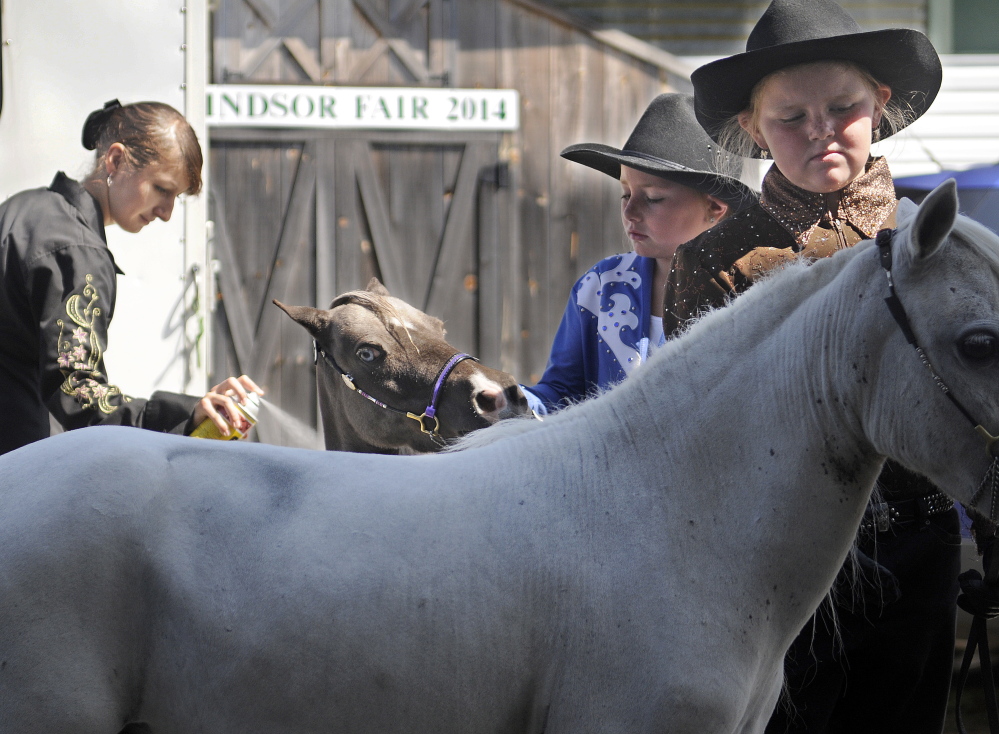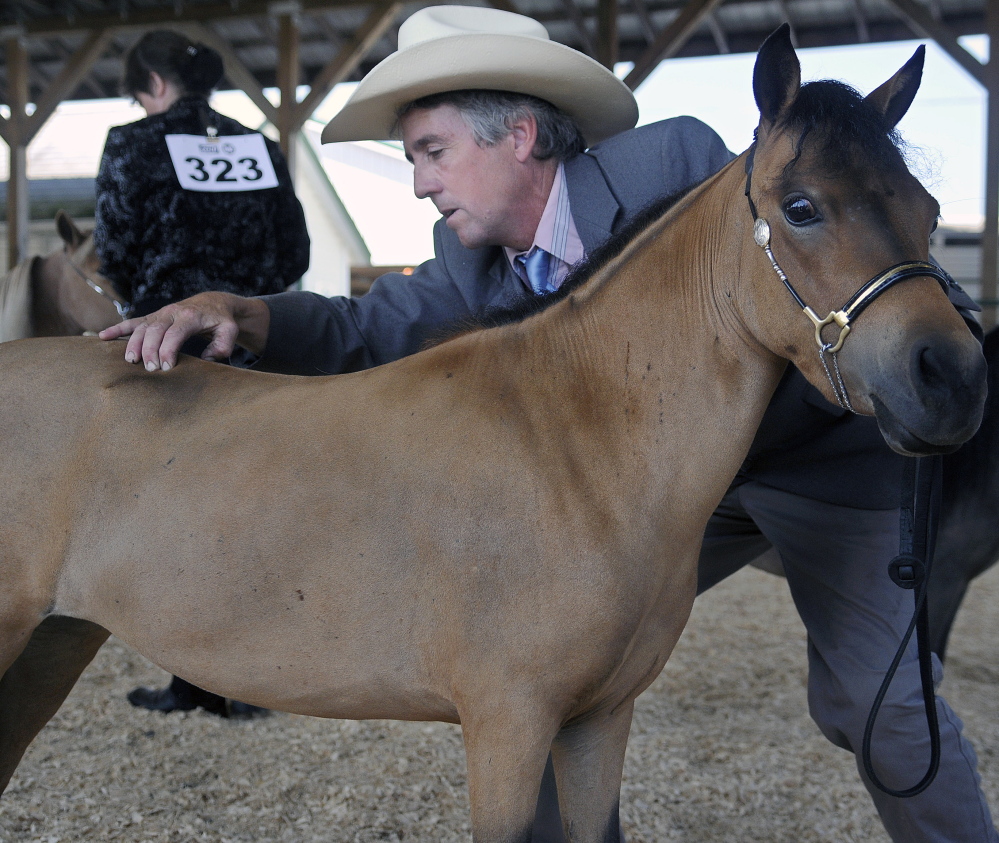WINDSOR — Whether pulling things, jumping things or just running fast, horses are usually a big draw at the Windsor Fair, but the horses who kicked off the fair Sunday were too small to do any of those things. Their great skill was looking pretty, displaying an uncommon gentleness and stealing hearts.
“They’re very sweet,” said Stacey Lord, of Orland’s Cotton Hill Miniature Horse Farm.
The miniature horse show was a first for the fair, which runs through Labor Day. A miniature horse show is akin to a dog show, with a judge considering the horse and handler’s characteristics and abilities to determine a winner. The comparison is appropriate because miniature horses, which stand about 34 inches tall and weigh about 250 pounds, are little bigger than giant dogs. Unlike ponies, the animals are miniature versions of traditional horses, said Mark Cooper, of Windham’s Cooper’s Royal Heritage Farm.
“With no size reference they should look like a full-size horse,” Cooper said.
Miniature horses have been bred for hundreds of years, according to the American Miniature Horse Association. In the 1700s the horses were used to pull carts in the coal mines in England, but even then they were also kept as pets. The horses arrived in America in the 1800s and were used in Appalachian coal mines until the 1950s, according to the association.
“The breed has changed considerably from that period,” Cooper said. “They kept breeding smaller and smaller.”
Miniatures can still be used to haul wagons, but they are primarily used for companionship. The horses excel in that role. Cooper said he’s had numerous special needs groups visit his farms, and the horses display patient gentleness even as people gather around to touch and pat them. Their affectionate nature has made the horses excellent therapy animals, Cooper said.
“Because of their size and temperament they are very popular with special needs children and adults,” he said.
People have even been known to take the horses to live in their houses, though Cooper’s horses stay in the barn, at least for the most part. He sheepishly recalled that one time a few years ago when one of the horses was sick, Cooper brought it into the house and made a bed by the fire.
“We don’t bring them in the house very often,” Cooper said. “But it is pretty easy to get them house trained.”
Lord said her family began raising miniature horses for her children.
“They weren’t sure of the large horses,” she said. “They picked up on the little ones.”
Children, some younger than 7, easily handled the horses Sunday at the fair.
One of the eight horses Lord brought with him had been unusually skittish and difficult to handle when it first came to the farm.
“We worked with him and he came right out of it,” Lord said. “He’s the sweetest thing.”
The horses are a realistic option for people who lack the land and money to own full-sized horses. A couple of miniature horses can comfortably live on an acre or two, and one horse eats about 80 percent less than a full-size horse.
“It’s a lot cheaper to feed the minis than one giant horse,” Lord said.
Like their full-grown relatives, however, miniatures can live more than 20 years.
“It’s a long-time commitment,” Cooper said.
Sunday’s show, like any beauty contest, was preceded by a lengthy period of primping and preening. Horses were cleaned and brushed and, in some cases, even had their hooves painted with a shiny gloss. Cooper said he tries to get his horses to take on the look of an Arabian horse.
“We try to make them as regal as we can,” Cooper said.
Much of the responsibility for making the horses look good rests with the handler. Cathy McDevitt, of Birch Crest Farm in Freedom, who took home first in a category, said she tries to get the horse to stand with correct posture to give the best show to the judges.
“When you set them up, you want to have their feet all nice and squared,” McDevitt said.
Both the horse and the handler must make a neat, clean presentation. The duo also must have a chemistry.
“It’s like a partnership,” McDevitt said. “You want to see them work together.”
Craig Crosby — 621-5642
Twitter: @CraigCrosby4
Send questions/comments to the editors.



